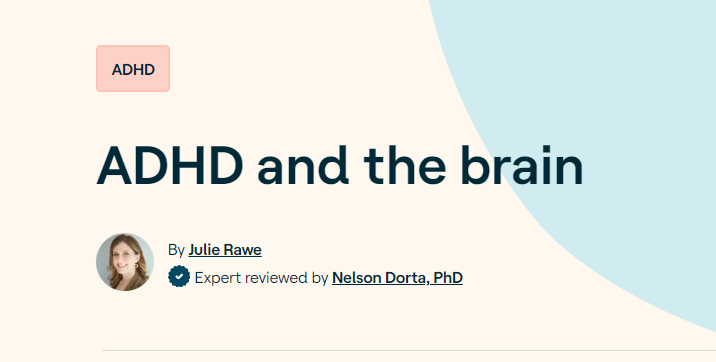In our next newsletter, we have some great information from Paula all about ADHD with tons of helpful links to help you out. Check it out below:
What is ADHD?
(Attention deficit hyperactivity disorder )
ADHD is a condition that’s caused by differences in the brain . People with ADHD have trouble with focus. But some are also hyperactive and impulsive . ADHD can also impact other skills, including managing emotions. That’s especially true with kids and teens. People with ADHD have trouble with a group of key skills known as executive function . And that creates challenges in many areas of life, from school to work to everyday living. For example, people with ADHD often struggle to get organized, follow directions, and manage their emotions. ADHD isn’t a matter of laziness or willpower — that’s one of many myths about it. In fact, people with ADHD are often trying as hard as they can to focus and keep their impulses in check. For a long time, people thought ADHD was something only kids — boys, in particular — had. But research shows that adults also struggle with ADHD, and that women and girls have it as often as men and boys.
However people with ADHD who have trouble focusing most of the time can often “hyperfocus” on tasks or activities they find really interesting. For instance, a child might focus for hours while doing a craft project but drift off five minutes after starting homework. Or an adult may hyperfocus on video games or a TV show, to the point that they don’t hear their name being called. Signs of ADHD can pop up at any age. Kids can show signs as young as preschool. But many don’t show signs until later on, as school gets harder and they have more to juggle. Some people don’t realize that what they experience is ADHD until they’re in college or working. Some people aren’t diagnosed with ADHD until after high school or as adults. No matter when people are diagnosed with ADHD, there are treatments that can make symptoms more manageable and supports that can make things easier at school and at work.
People with ADHD often struggle with:
- Managing time
- Getting and staying organized
- Setting priorities
- Planning
- Managing emotions
- Paying attention and remembering things
- Shifting focus from one thing to another
- Getting started on and finishing tasks
- Thinking before saying or doing things
How ADHD is diagnosed
There are no tests for ADHD. Instead, evaluators use a variety of tools to determine if a child has ADHD. One is a questionnaire about behavior. Another is a clinical interview. To initiate a referral for diagnosis parents need to consult their child’s teacher and request documentation
(for example a learner profile is available at Waihi College) which indicates ADHD characteristics. This will be helpful in providing your family doctor or pediatrician with the necessary knowledge to proceed with the referral process. Schools are not able to diagnose ADHD this needs to be done through consultation with your GP.
Explore this topic Further
Try a simulation to see ADHD through a child’s eyes
Get answers to common questions about ADHD
Explore a collection of ADHD personal stories
Learn how boys may experience ADHD versus how girls often experience it
See how the ADHD brain is different
Watch as an expert explains the process for diagnosing ADHD
ADHD NZ https://www.adhd.org.nz/
- Formed in 1979, ADHD NZ are New Zealand’s largest, longest-standing non-profit organization, committed to supporting those living with ADHD. The network includes hundreds of organizations that you can connect to, and get support from, through resources and events to improve the awareness and support of ADHD in New Zealand. The vision is to advance the ADHD community by providing practical information and support. They connect people and organizations, enabling members to collaborate on solutions and live with ADHD successfully. They inspire members to succeed through learning events and sharing their stories and help them act through expert advice and support.

